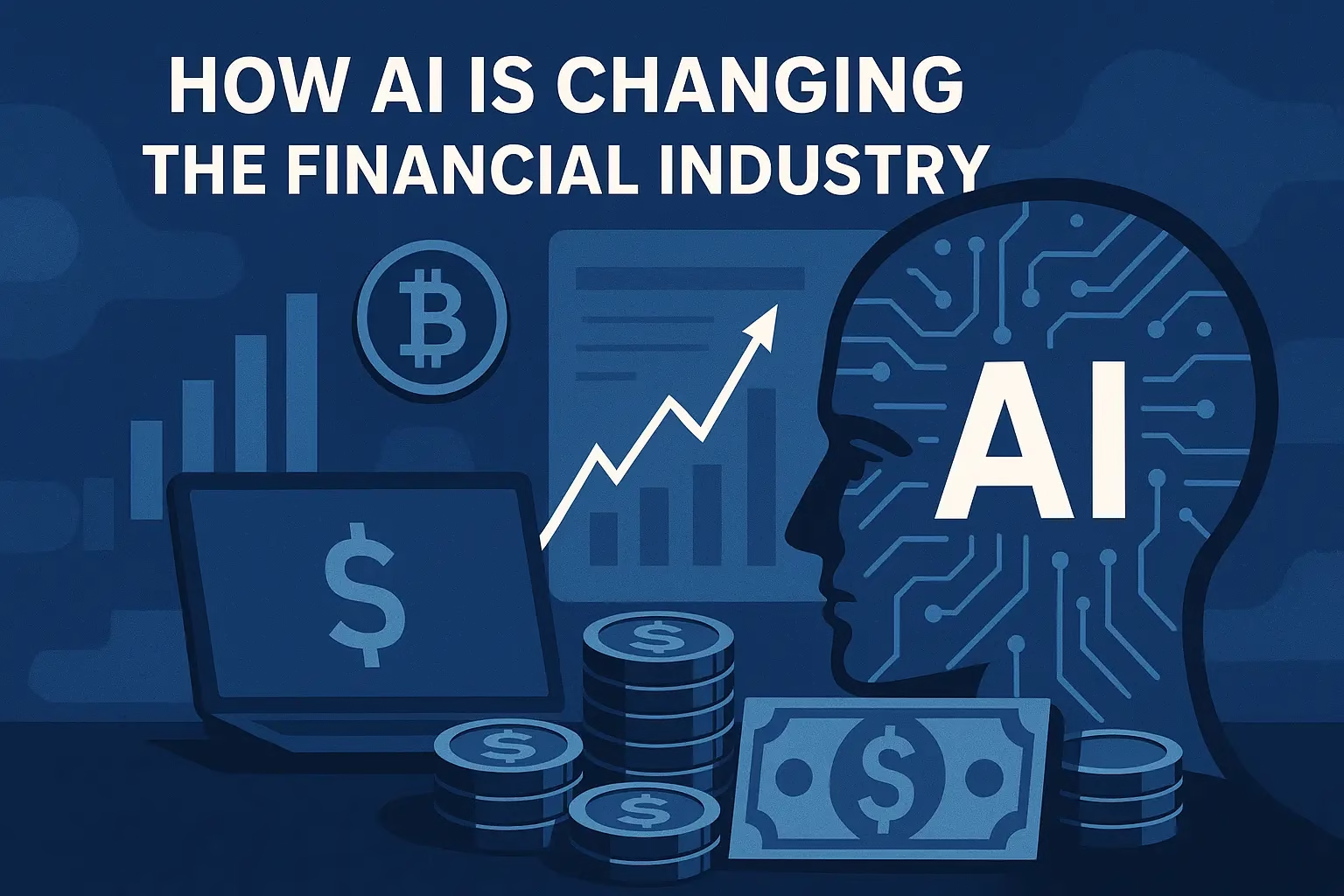Artificial intelligence is no longer just a buzzword—it’s a financial revolution. From banks to hedge funds, AI in finance is transforming how institutions operate, analyze, and interact with customers. Whether it’s automating transactions or predicting market trends, AI is streamlining the entire financial ecosystem. And it’s happening at breakneck speed.
AI’s rise in finance isn’t an overnight story. It’s the result of decades of data collection, algorithm development, and increasing demand for smarter, faster decisions. As we look closer, the impact of AI on finance becomes not only apparent but profound.
The Role of AI in Finance
Automation and Efficiency Gains
AI automates repetitive tasks like data entry, compliance checks, and transaction monitoring. This saves time and reduces human errors. For example, AI-powered bots can process thousands of transactions per second, something no human team can match.
Data-Driven Decision Making
AI can analyze huge datasets in real-time, spotting trends and patterns invisible to human analysts. It enables banks and traders to make quick, informed decisions based on accurate, real-time data.
AI in Financial Forecasting
Predictive Analytics
AI uses historical data and advanced algorithms to forecast future trends, such as stock prices, interest rates, or customer behavior. Predictive analytics helps institutions plan better and minimize risks.
Risk Assessment and Trend Analysis
Machine learning models identify risks by analyzing past financial data, customer credit histories, and economic indicators. These models adapt over time, improving accuracy and reducing the chance of financial missteps.
Fraud Detection and Prevention with AI
Real-Time Monitoring
AI systems continuously scan millions of transactions, identifying suspicious activities in real-time. This helps banks prevent fraud before it causes damage.
Behavioral Analysis Algorithms
AI monitors customer behavior patterns to detect anomalies. For example, if a user suddenly logs in from a foreign country and tries to withdraw a large sum, the system can flag or block the transaction.
AI in Credit Scoring and Lending
Alternative Data Usage
AI models can analyze non-traditional data—like social media activity or utility payments—to assess creditworthiness. This helps people without a credit history access loans.
Reducing Human Bias in Loan Approvals
AI removes personal bias from lending decisions. While human lenders may be influenced by subconscious prejudices, AI focuses purely on data, making the process fairer.
Chatbots and AI-Powered Customer Service
24/7 Availability
AI chatbots provide round-the-clock support. They can answer FAQs, assist with account management, and escalate complex issues to human agents.
Personalized Financial Assistance
AI systems analyze customer history to offer personalized financial advice, helping users manage budgets, save money, or choose investment options.
AI in Stock Trading and Investment
Algorithmic Trading
AI algorithms analyze market conditions and execute trades within milliseconds. These systems can handle multiple markets and strategies simultaneously.
Robo-Advisors for Portfolio Management
Robo-advisors use AI to build and manage personalized investment portfolios. They adjust asset allocations based on goals, market conditions, and risk tolerance.
AI in Regulatory Compliance
Regulatory Technology (RegTech)
AI helps institutions stay compliant by automating report generation, policy checks, and legal audits. RegTech uses machine learning to interpret complex regulations.
AI for Anti-Money Laundering (AML)
AI enhances AML efforts by identifying unusual patterns and flagging potentially illegal activities. This boosts compliance and reduces penalties.
Natural Language Processing (NLP) in Finance
Sentiment Analysis
AI-powered NLP tools scan news articles, social media, and financial reports to gauge public sentiment. Investors use this insight to guide trading decisions.
AI for Document Processing
NLP helps banks process documents like contracts and loan applications faster and more accurately, reducing manual effort and errors.
AI and Blockchain Synergies
Smart Contracts
AI integrates with blockchain to create smart contracts that self-execute when predefined conditions are met—enhancing security and efficiency.
Decentralized Finance (DeFi) Enhancements
AI enhances DeFi platforms by optimizing trading, lending, and borrowing processes through real-time data analysis and automation.
Benefits of AI in Finance
- Speed and Scalability: Process millions of transactions in seconds.
- Accuracy: Reduce human errors in analysis and decision-making.
- Cost Savings: Automate expensive manual processes.
- Better Customer Experience: Offer personalized and real-time service.
Challenges and Risks of AI in Finance
- Data Privacy Issues: Sensitive customer data must be protected.
- Model Bias and Transparency: AI can unintentionally discriminate if trained on biased data.
- Job Displacement: Some roles may be replaced by automation.
- Cybersecurity Threats: AI systems can be targets for hackers.
Ethical Considerations
AI decisions in finance can affect lives. It’s essential to ensure fairness, explainability, and accountability in AI-driven financial decisions. Institutions must be transparent about how their AI tools function and make decisions.
Future Trends in AI and Finance
- Quantum Computing: Promises even faster data processing and AI capabilities.
- Autonomous Financial Advisors: Fully AI-driven investment platforms with minimal human oversight.
- Hyper-Personalization: AI will tailor services to individual behaviors and preferences.
Case Studies
- JPMorgan’s COiN Platform: Processes legal documents in seconds, saving 360,000 hours annually.
- PayPal’s Fraud Detection System: Uses deep learning to stop billions in fraudulent transactions every year.
How Businesses Can Leverage AI Today
- Choose Smart Tools: Start with AI-powered analytics or chatbots.
- Invest in Infrastructure: Ensure your data is secure, clean, and structured.
- Train Your Team: Upskill staff to work alongside AI.
FAQs About AI in Finance
1. What is AI in finance used for?
AI is used for fraud detection, risk analysis, customer service, investment management, and more.
2. Is AI replacing financial jobs?
Not entirely. It automates repetitive tasks but also creates roles in data science, AI ethics, and system management.
3. How secure is AI in banking?
Very secure when implemented correctly. However, like all tech, it’s vulnerable if not monitored and updated.
4. Can AI predict stock markets?
AI can forecast trends and patterns, but it cannot guarantee future stock movements.
5. Is AI in finance legal and regulated?
Yes, but regulations are still evolving. Countries are introducing guidelines to ensure safe AI usage.
6. What skills are needed for AI in finance?
Skills in data science, programming (Python), finance, and machine learning are essential.
Conclusion
AI in finance is more than a technological upgrade—it’s a seismic shift in how the financial world operates. From increasing efficiency to minimizing risks, AI is enhancing every layer of the industry. Financial institutions that embrace this change will stay competitive and resilient. Those that resist? They risk being left behind.



